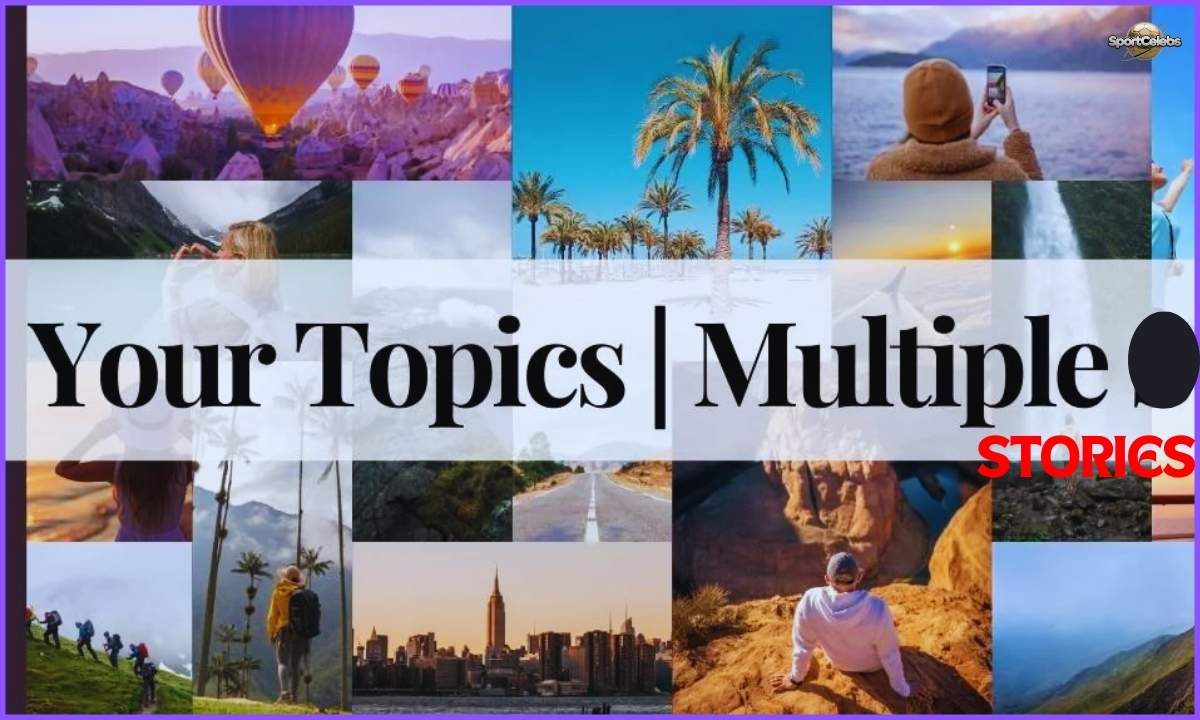In today’s interconnected world, how we consume and understand stories has dramatically transformed. The concept of Multiple Stories has become increasingly important as we navigate through complex social issues, global events, and personal experiences.
Understanding Multiple Stories in the Digital Age
The digital revolution has transformed how people engage with stories across different platforms and mediums. Social media, blogs, podcasts, and online forums have created an environment where diverse voices contribute to broader conversations.
Traditional gatekeepers no longer control the flow of information, allowing previously marginalized voices to contribute their stories and perspectives. This shift has created a richer tapestry of narratives that better reflects the complexity of human experience.
| Narrative Element | Traditional Approach | Modern Multiple Narrative Approach |
| Source of Information | Single authority | Multiple diverse sources |
| Perspective | Limited viewpoint | Multiple angles and interpretations |
| Context | Often simplified | Rich, layered understanding |
| Audience Engagement | Passive consumption | Active participation and discussion |
The Impact of Multiple Stories on Society
In modern society, Multiple Stories have fundamentally altered how we process and understand major events, from political movements to cultural shifts.
These diverse perspectives have empowered previously unheard voices to share their experiences and challenge dominant narratives that have historically shaped public opinion.
Shaping Public Opinion
Multiple Stories shape public opinion by presenting diverse perspectives on complex social issues. These varied viewpoints challenge conventional wisdom and encourage critical thinking, leading to more informed public discourse.
Community Decision Making
The presence of Multiple Stories has revolutionized how communities address social challenges. When people encounter various perspectives on an issue, they develop more comprehensive solutions that consider different stakeholders’ needs.
Digital Platforms and Multiple Stories
Digital storytelling platforms have revolutionized how narratives spread and intersect in the modern information landscape.
Social media algorithms, while often criticized, have unexpectedly become powerful tools for amplifying diverse voices and alternative perspectives that traditional media might have overlooked.
Platform Diversity
Modern technology has created unprecedented opportunities for sharing and accessing diverse stories. Each digital platform offers unique ways to engage with Multiple Stories, from quick social media updates to in-depth blog posts.
Connecting Communities
Digital tools have made it easier for people to find and connect with others who share similar experiences. The accessibility of various narrative formats ensures that important stories reach wider audiences.
| Platform Type | Role in Storytelling | Impact on Narrative |
| Social Media | Rapid sharing | Immediate engagement |
| Blogs | In-depth analysis | Reflective content |
| Forums | Community discussion | Collaborative understanding |
Business and Marketing Applications

Companies are discovering that embracing Multiple Stories in their marketing strategies leads to more authentic connections with diverse customer bases and stronger brand loyalty.
This shift from single-message marketing to multi-narrative approaches has helped businesses better understand and address the varying needs and preferences of different market segments.
Brand Communication
Organizations now recognize that incorporating Multiple Stories helps them connect with diverse audiences more effectively. Companies that embrace varied perspectives build stronger relationships with customers.
Product Development
Modern businesses use Multiple Stories to develop more inclusive products and services. By considering different viewpoints during development, companies create offerings that resonate with broader audiences.
Read This Blog: Exploring VyvyManga: Your Gateway to Manga Adventure
Educational Impact
Educational institutions are witnessing a transformation in learning outcomes as they incorporate multiple narrative approaches into their curriculum development and teaching methodologies.
Students exposed to diverse perspectives demonstrate improved critical thinking skills and show greater empathy toward different cultural viewpoints and historical interpretations.
Classroom Transformation
Multiple Stories have transformed educational approaches by introducing diverse perspectives into learning environments. Teachers now incorporate various viewpoints when presenting historical events and cultural developments.
Student Engagement
The integration of Multiple Stories in education has improved student engagement. When learners encounter different perspectives on a subject, they develop better analytical abilities.
Managing Multiple Stories
The challenge of managing Multiple Stories in professional settings has led to innovative approaches in corporate communication and public relations strategies.
Organizations are developing sophisticated frameworks for balancing different stakeholder perspectives while maintaining clear and consistent brand messaging.
Common Challenges
Organizations and individuals must navigate certain challenges when dealing with diverse perspectives. Managing information overload and maintaining quality control requires careful attention.
Strategic Solutions
Professional communicators must balance the benefits of Multiple Stories with practical considerations. Creating frameworks for evaluating different perspectives helps maintain coherent communication.
| Challenge | Impact | Solution |
| Information Overload | Processing difficulty | Structured analysis |
| Conflicting Messages | Confusion | Critical evaluation |
| Quality Control | Reliability concerns | Fact-checking |
Future Developments
The evolution of multiple narrative approaches is being shaped by emerging technologies like artificial intelligence and augmented reality, which offer new ways to present and interact with diverse perspectives.
Emerging Technologies

Emerging technologies continue to shape how we engage with Multiple Stories. Artificial intelligence and virtual reality create immersive experiences that help people understand different perspectives.
Platform Evolution
The evolution of digital platforms enables more interactive storytelling approaches. Cross-platform integration and innovative content creation tools make it easier to share complex narratives.
Communication Strategies
Professional communicators are developing new methodologies for incorporating Multiple Stories while maintaining message clarity and brand consistency.
This strategic evolution involves creating adaptive content frameworks that can resonate with different audience segments while preserving core messaging integrity.
Content Design
Effective communication strategies now regularly incorporate Multiple Stories. Professional communicators design content that reflects diverse perspectives while maintaining clear messaging.
Channel Selection
Modern communication platforms enable organizations to share Multiple Stories across various formats. Strategic channel selection ensures that different perspectives reach their intended audiences.
Read This Blog: Exploring Eworldexternal.com: Your Comprehensive Guide to External Solutions
Frequently Asked Questions (FAQs)
What makes Multiple Stories different from traditional storytelling?
Multiple Stories involve presenting diverse perspectives on a single topic, unlike traditional storytelling which relies on a single authoritative voice. This approach provides a more comprehensive understanding of complex issues.
How do Multiple Stories impact decision-making?
Multiple Stories enhance decision-making by providing comprehensive information from various perspectives. This allows individuals and organizations to make more informed choices.
Can Multiple Stories lead to confusion?
While Multiple Stories can create complexity, proper organization helps navigate different viewpoints effectively. The key is developing the ability to evaluate and synthesize various perspectives.
How can organizations incorporate Multiple Stories?
Organizations can incorporate Multiple Stories by seeking diverse perspectives and creating inclusive content strategies. This includes involving various stakeholders in communication planning.
What role does technology play in supporting Multiple Stories?
Technology enables Multiple Stories by providing platforms for sharing and accessing diverse perspectives. Digital platforms make it easier to create and consume multiple narrative content.
Conclusion
The power of Multiple Stories lies in their ability to provide rich, nuanced understandings of complex issues and events. By embracing diverse perspectives and storytelling approaches, we can develop more comprehensive and inclusive ways of understanding the world around us.
As we continue to navigate an increasingly complex world, the importance of Multiple Stories will only grow. Understanding and engaging with diverse perspectives has become essential for personal growth, professional success, and societal progress.

Ansa is a talented content writer and digital marketer with expertise in SEO, social media management, and online marketing. She excels at creating impactful, data-driven content to help businesses connect with their target audience and achieve measurable outcomes.







